OVERVIEW
Ground your leadership learning for the year ahead
During this module, you will be introduced to a variety of leadership models, theories, and ideas through an interactive team-building webinar and a collection of readings and recorded presentations. All components of this module will ground your perspective and learning prior to the LAPH 2024 Retreat.
Myers-Briggs Type Indicator (MBTI) Assessment
During the LAPH core webinar, “MBTI - Understanding You, Me, and Us: Psychological Type & Team Dynamics”, we will be conducting a self-awareness and team building session using the well-known Myers-Briggs Type Indicator (MBTI). All LAPH fellows will be required to take the assessment well in advance of this webinar. To learn more about and take the MBTI Assessment, please visit the MBTI Team Report page.
ASSIGNED ON
December 12, 2023
DUE DATE
January 12, 2024
Module Webinars
CORE WEBINAR
LAPH 2024 Program Launch
Recorded Tuesday, December 12, 2023
10:30 am PT / 1:30 pm ET
(90 min event time)
During this webinar, fellows were provided with an overview of the NLAPH program curriculum, program timeline, upcoming events, and introduced to the teams for the 2024 program year. Fellows were also introduced to program coaches and support staff.
CORE WEBINAR
MBTI - Understanding You, Me, and Us: Psychological Type & Team Dynamics
Recorded Wednesday, January 24, 2024
10:30 am PT / 1:30 pm ET
(2 hour event time)
During this webinar, teams participated in a self-awareness and team-building session using the results from the well-known Myers-Briggs Type Indicator (MBTI) Assessment.
NLAPH 2024 Baseline Surveys
Baseline surveys are currently in progress and due to the Center for Community Health and Evaluation (CCHE) by January 12, 2024.
All fellows were sent an individual baseline survey and each team was also sent a team baseline survey from our evaluation partners at CCHE via email. If you have any questions about the surveys, or need a survey link resent to you, please contact Abbie Lee at Abbie.N.Lee@kp.org.
Once the surveys have been compiled and analyzed, a video summary of the results will be posted here for review.
ASSIGNED ON
December 12, 2023 (via email)
DUE BY
January 12, 2024
Resources
As part of this module, you will review resources that will expose you to a variety of leadership models, theories, and ideas, while grounding your perspective and learning prior to the NLAPH 2024 Retreat.
Please review all resources by Friday, March 22.
ASSIGNED ON
January 2
DUE DATE
Friday, March 22
RESOURCES
Webinars & videos
These introduce important leadership concepts that will be built upon and discussed in more depth during the LAPH Retreat. Watch each webinar and discuss with your teammates prior by the Friday, March 22.
Dr. Judith Monroe on Dr. William Foege’s 10 Lessons
Dr. Judith Monroe created the vision for the National Leadership Academy for the Public’s Health. She is the director of the Centers for Disease Control & Prevention (CDC) Foundation and has also served as director of the Office for State, Tribal, Local, and Territorial Support (currently CSTLTS, a Center of CDC), and the deputy director for the CDC. In this keynote address, Dr. Monroe provides her perspective on leadership and the importance of purpose and collaboration by sharing stories woven together with Dr. William Foege’s leadership lessons.
The Power of Vulnerability
Brené Brown, PhD, LMSW has spent the past decade studying vulnerability, courage, worthiness, and shame. Brown's 2010 TEDx Houston talk, The Power of Vulnerability, is one of the most watched talks on TED.com, with over nearly 30 million views. Check it out!
What Makes Us Get Sick? Look Upstream
Rishi Manchanda, MD, MPH, a physician in South Central Los Angeles, goes to the root cause of what is making his patients ill—the “upstream" factors like poor diets, stressful jobs, and a lack of fresh air. Manchanda's 2014 TEDSalon talk, What Makes Us Get Sick? Look Upstream, is his perspective on health and what health care should look like for everyone.
Agile Leadership to Advance Community Health Equity: Introductory Concepts
Eric Baumgartner, MD, MPH, and former NLAPH advisor, presents some crucial leadership topics and strategies including an introduction to agile/adaptive leadership.
Rocky Times: Why Agile Leadership is Crucial for Impact
LAPH program alumni discuss leveraging multi-sector partnerships to advance equity in their communities. Each leader’s story exemplifies the adaptive skills necessary to pivot strategy as necessary to truly meet the needs of their communities and achieve higher impacts.
Leadership Models We Can Learn From
Leadership Models We Can Learn From, features a panel discussion between Chad Smith, JD, Principal Chief of the Cherokee Nation from 1999 to 2011, and Curtis Weaver, MA, Senior Adviser to the Director of Biosurveillance Coordination at the U.S. Centers for Disease Control and Prevention. These leaders have two different leadership models: meta-leadership and tribal leadership. Through their discussion, you will be able to reflect on leadership models in relation to your personal style, gain new knowledge about different models of leadership, and hear case examples of different models in action.
RESOURCES
Essential reading
LAPH Building Adaptive Leaders Case Study (Center for Health Leadership & Impact, 2021)
LAPH has a long history of emphasizing adaptive leadership skill development in its program model and adaptive leadership principles are deeply embedded into LAPH’s program design and practices. In this case study, LAPH participants reported that the program impacted how they approached certain challenges in their applied projects, how they see themselves as leaders, and how their adaptive leadership skills have benefited work in their communities. As public health issues continue to evolve, programs like LAPH are crucial for supporting leaders develop the skills needed to effectively advance health and equity in our communities.
LAPH Health Equity and Racial Justice Case Study (Center for Health Leadership & Impact, 2021)
Driven by the history of public health and the rise in awareness of health inequities disproportionately affecting different areas of the country, LAPH committed to developing a program that bolsters skills and knowledge needed to address health equity within communities. The program design integrates health equity and related topics including racial justice, multi-sector engagement, and social determinants of health throughout program content. This case study was developed from an in-depth review of the health equity principles across program design, program materials, program surveys, and a series of retrospective interviews with LAPH alumni conducted in September 2021.
Collective Impact (Kania & Kramer, 2011)
“Large-scale social change requires broad cross-sector coordination, yet the social sector remains focused on the isolated intervention of individual organizations” (Kania & Kramer, 2011). This article featured in the Stanford Social Innovation Review (SSIR) explores the five conditions of collective success.
Channeling Change: Making Collective Impact Work (Hanleybrown, Kania, & Kramer, 2012)
Cross-sector Collaboration: What the Tipping Point Looks Like (Van Ton-Quinlivan, 2017)
Small Wins - Redefining the Scale of Social Problems (Karl E. Weick, 1984)
The Water of Systems Change (John Kania, Mark Kramer, Peter Senge, 2018)
Press release (optional)
Creating a press release is a great way to announce your team’s participation in the Leadership Academy for the Public’s Health (LAPH) and broadcast it through relevant state and local venues. We offer a template for the press release and the following guidance.
DATE
None specified, optional for anytime
Guidance for creating & distributing a press release
STEP 1
Create a distribution list
Compile a distribution list of relevant local and state governmental media sources, as well as local press sources, to receive and disseminate the press release. Examples include:
Regional or District Senator
District Congressperson
State Health Officer
County Health Officer
Local Mayoral Office
Local City Council
Local Newspapers
Relevant Websites
STEP 2
Write your press release
Review the press release template and provide additional information in all areas highlighted in yellow. Try to limit the press release to 300 to 500 words. Journalists and government officials receive dozens of releases each day and they tend to ignore those which are overly long.
STEP 3
Review for accuracy
Have several people review your press release for errors in grammar, content, etc. If you have any questions about how to complete the press release, please let us know.
STEP 4
Distribute the press release
Once finalized, distribute the press release to everyone on your distribution list.
STEP 5
Send the press release to CHLI staff
Please forward both your press release and distribution list to laph@healthleadership.org.
STEP 6
Maintain documentation
Maintain documentation of the distribution of the press release and copies of press releases (e.g., newspaper articles, etc.) and send any other press information to CHLI. Examples of other press information include articles in print or online publications, awards and other types of recognition, and anything else that brings your work attention from a greater audience.


